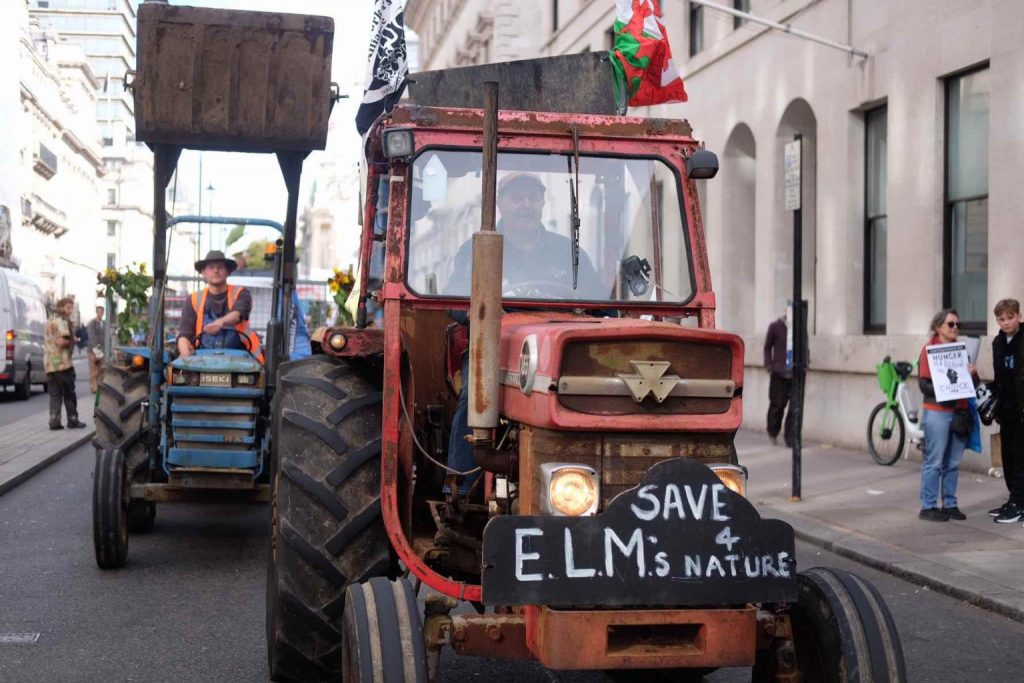“Farming, food production and the environment go hand-in-hand and I’m sure the Prime Minister enjoyed meeting with our Devon farmers who strive daily to support the nation.” [Paul: Exeter farmer]
.
We are witnessing something of a ‘greenlash’ as farmers are in revolt and Europe’s climate policies are crumbling:
Ursula von der Leyen surrendered to angry farmers last week faster than you could shake a pitchfork or dump a tractor-load of manure outside the European parliament… Von der Leyen’s sudden U-turn on one of her signature policies was not just an attempt to defuse a spreading continent-wide rural revolt over rising fuel costs, burdensome environmental regulations, retailers’ price squeezes and cheap imports...
Staying on the Continent, people are asking who feeds Europe, and how much do they earn?
One of the demands in the ongoing farmer protests is for fair prices and a fair income. But how many farmers are there and what do individual farmers earn? In my previous post, I examined income trends at an aggregate level, both for the EU and for France as a Member State case study. In this post, I want to dig more behind the aggregate numbers to look at how incomes are distributed within the farming sector.

Exactly the same responses and questions are whirling around the UK. And the respectable journal The Grocer has suggested this week that UK farmers should follow their European peers and protest
Yesterday, more than 80 tractors disrupted motorway traffic in Wales as farmers protested against government plans:
The latest demonstration comes as farming unions have expressed their concern about government proposals which could mean the current basic payment scheme is replaced by the sustainable farming scheme (SFS).
And today, farmers parked tractors at Tesco Extra, Whitfield, Dover in a row over cheap imports.
“They’re pushing us towards greening the country and reducing our CO2 emissions which is brilliant in theory apart from every single one of those crops that is not being grown in this country is going to be grown aboard.”
” This is about food being sold under the cost to produce it. That’s illegal in Europe but allowed here. It’s not sustainable.”
And, as on the Continent, it’s getting very (party) political here in the UK, with a piece by Ben Marlow in this week’s Telegraph suggesting that Britain’s farmers’ revolt is a Brexit backlash that could hurt Rishi Sunak:
That’s not to say Brexit is the only factor making farming increasingly unsustainable, according to some practitioners. National Farmers’ Union (NFU) president Minette Batters said that years of “unsustainably high production costs and crop losses because of extreme weather” had put farmers under pressure. Low supermarket prices too are a common complaint.
Nevertheless, the slogans that had been daubed across trailers and other machinery in Dover made it clear what many farmers are most angry about: “No more cheap imports” and “no to [New Zealand] lamb”, the signs said. Meanwhile, farmer Jeffrey Gibson took to Facebook to remind people that farmers are also dismayed with the Government’s post-Brexit sustainable farming incentive scheme, which hands out payments to farmers according to how much a farm gives back to the environment.
With campaigning for the UK general election already under way, to what extent this week’s meeting of the Prime Minister and East Devon’s MP with local farmers in Sidbury was (party) political is probably a matter of opinion – but it provided an opportunity for NFU members to discuss the future of farming with the Prime Minister:
During a tour of the South West, the Prime Minister talked to around 20 farmers at Sidbury Village Hall in East Devon. Members had the opportunity to discuss issues surrounding bovine TB, the Sustainable Farming Incentive and agricultural planning issues in the county.
NFU Devon County Adviser Fiona Rew said: “Thank you to the Prime Minister for his time and to MP Simon Jupp for arranging the visit. We really welcomed the opportunity for local farmers to speak directly to the PM about key issues. During the meeting, farmers asked for sustainable food production to be recognised as a public good under the SFI schemes and impressed upon the PM the need for clarity over future schemes. They urged the PM to make a commitment to procuring British produce for national services and discussed self-sufficiency targets.
Paul, who farms in Exeter, said: “To have the opportunity to meet with the Prime Minister at the start of an election year was really important for our members so that we could make it known what we want to see going forward for the future of farming. The work of our farming community is integral to life here in Devon where family farmers work hard every day to produce great tasting, high quality food, in often challenging conditions, while maintaining our countryside. Farming, food production and the environment go hand-in-hand and I’m sure the Prime Minister enjoyed meeting with our Devon farmers who strive daily to support the nation.”
…